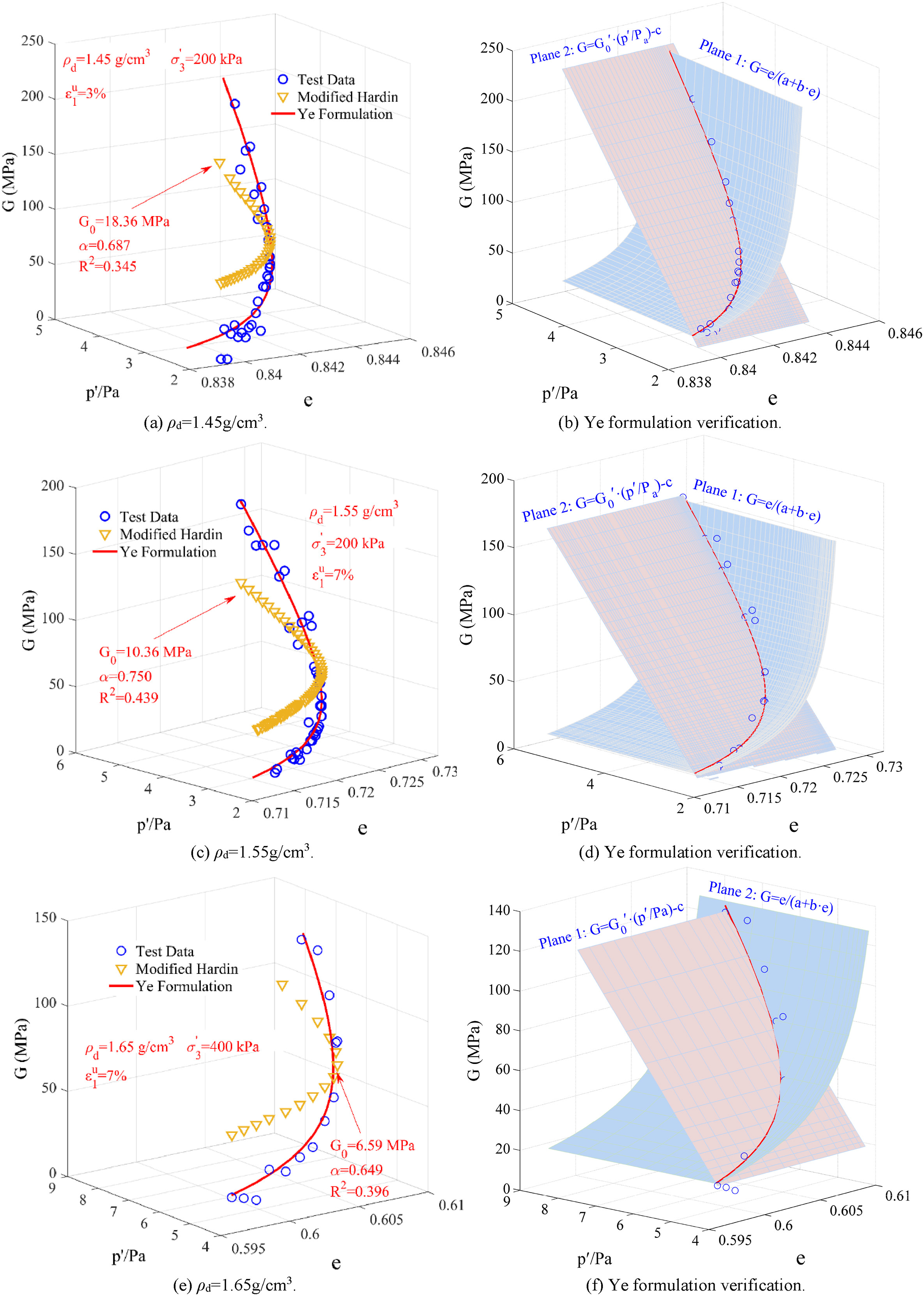JRMGE / Vol 16 / Issue 3
A novel relationship between elastic modulus and void ratio associated with principal stress for coral calcareous sand
Ran Gao, Jianhong Ye
Show More
a State Key Laboratory of Geomechanics and Geotechnical Engineering, Institute of Rock and Soil Mechanics, Chinese Academy of Sciences, Wuhan, 430071, China
b University of Chinese Academy of Sciences, Beijing, 100049, China
2024, 16(3): 1033-1048. doi:10.1016/j.jrmge.2023.07.011
Received: 2023-01-07 / Revised: 2023-06-06 / Accepted: 2023-07-09 / Available online: 2023-09-07
2024, 16(3): 1033-1048.
doi:10.1016/j.jrmge.2023.07.011
Received: 2023-01-07
Revised: 2023-06-06
Accepted: 2023-07-09
Available online: 2023-09-07
Elastic moduli, e.g. shear modulus G and bulk modulus K, are important parameters of geotechnical materials, which are not only the indices for the evaluation of the deformation ability of soils but also the important basic parameters for the development of the constitutive models of geotechnical materials. In this study, a series of triaxial loading-unloading-reloading shear tests and isotropic loading-unloading-reloading tests are conducted to study several typical mechanical properties of coral calcareous sand (CCS), and the void ratio evolution during loading, unloading and reloading. The test results show that the stress-strain curves during multiple unloading processes are almost parallel, and their slopes are much greater than the deformation modulus at the initial stage of loading. The relationship between the confining pressure and the volumetric strain can be defined approximately by a hyperbolic equation under the condition of monotonic loading of confining pressure. Under the condition of confining pressure unloading, the evolution of void ratio is linear in the e-lnp′ plane, and these lines are a series of almost parallel lines if there are multiple processes of unloading. Based on the experimental results, it is found that the modified Hardin formulae for the elastic modulus estimation have a significant deviation from the tested values for CCS. Based on the experimental results, it is proposed that the elastic modulus of soils should be determined by the intersection line of two spatial surfaces in the G/K-e-p'/pa space (pa: atmosphere pressure). “Ye formulation” is further proposed for the estimation of the elastic modulus of CCS. This new estimation formulation for soil elastic modulus would provide a new method to accurately describe the mechanical behavior of granular soils.
Keywords: Coral calcareous sand (CCS), Elastic shear modulus, Elastic bulk modulus, Triaxial test, Estimation formulation, Ye formulation
Article Data
Author(s) Information
Jianhong Ye

Jianhong Ye is currently a full professor at the Institute of Rock and Soil Mechanics, Chinese Academy of Sciences (CAS). He obtained BEng from the China University of Geosciences (Beijing) in 2006, MEng from the Institute of Geology and Geophysics, CAS in 2009, and PhD from the University of Dundee in 2012. He accepted support from the National Overseas High-Level Talent Program in 2015. Over the last 15 years, he has developed the finite element software FssiCAS (http://www.fssi.ac.cn/download.html) for Fluid-Structure-Seabed Interaction (FSSI), ocean wave/seismic wave-induced dynamics and instability evaluation of marine structure and its seabed foundation. His research interests include marine geotechnics, soil liquefaction, FSSI and computational geomechanics. So far, he has published more than 60 high-level academic papers with over 1800 total citations (based on Google Scholar). He currently serves as an editorial board member of Bulletin of Engineering Geology and the Environment, China Ocean Engineering, Rock and Soil Mechanics, Applied Sciences-Basel, and Geoenvironmental Disasters. Prof. Ye has received several academic awards in China, and has been granted more than ¥20 million funding to support his research in the past 10 years.

